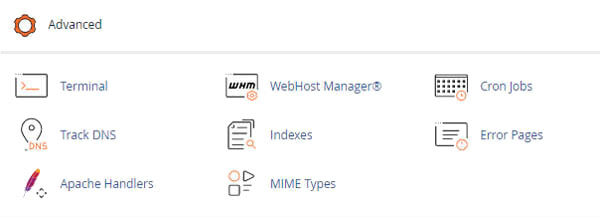Handlers
Apache handlers determine how the Apache web server processes specific file types and extensions on your website. By default, Apache is set up to handle CGI scripts, and server-parsed files (SSI).. If you want Apache to treat a new file type using an existing handler, you can add it manually below. For instance, to make the server handle files with a .example extension as CGI scripts, enter cgi-script in the Handler field and .example in the Extension(s) field.

Login to your cPanel and access the option "Apache Handlers".
You can configure Apache to handle a new file type with an existing handler by manually adding the handler and extension.
Apache can handle CGI scripts and server-parsed files. The file extensions for these files include .cgi, .pl, .plx, .ppl, .perl, and .shtml.
To add an Apache handler, perform the following steps:
Enter the handler name in the Handler text box. This can be any name you choose
cPanel includes the following built-in handlers:
Enter the file extension in the Extension(s) text box.
Space-separate multiple extensions (for example, .cgi .pl .ppl).
Click Add.
For more information, read Apache’s documentation.
Note: This interface does not allow you to create custom Apache handlers.
To remove a user-defined handler, perform the following steps:
Click Delete under the Remove heading for the appropriate handler in the User Defined Apache Handlers table.
Click Yes.
Note: You cannot remove the file extensions that Apache automatically handles.
Tweet Share Pin Email
This policy contains information about your privacy. By posting, you are declaring that you understand this policy:
This policy is subject to change at any time and without notice.
These terms and conditions contain rules about posting comments. By submitting a comment, you are declaring that you agree with these rules:
Failure to comply with these rules may result in being banned from submitting further comments.
These terms and conditions are subject to change at any time and without notice.
Comments